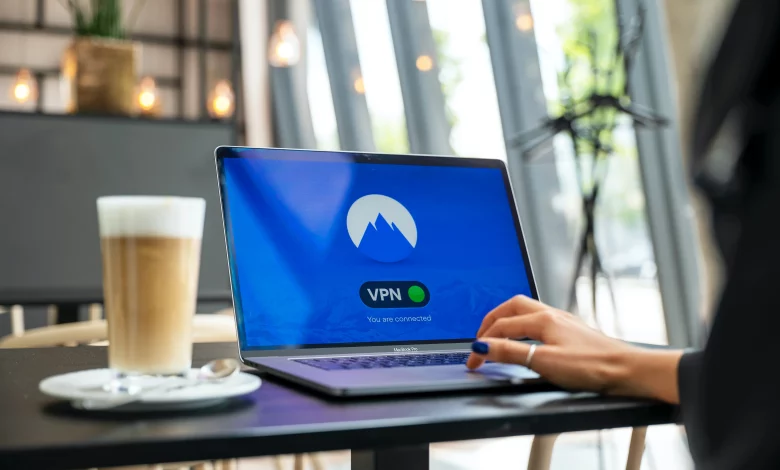What is a VPN?
The term “VPN” has become more commonplace in a world where digital interactions predominate. But what exactly is a VPN, and why should you care? Let’s delve into the world of virtual private networks, demystify their workings, and explore their myriad benefits.
A virtual private network is a secure and encrypted connection that allows users to access the internet while maintaining privacy and anonymity. It works by routing your internet traffic through a server at a location of your choice, masking your IP address, and encrypting the data exchanged between your device and the internet. This not only enhances online security by preventing third parties from monitoring your activities but also enables users to bypass geographical restrictions, ensuring a private and unrestricted browsing experience.
How VPN Works
A VPN, short for Virtual Private Network, is a technology that operates by establishing a secure and encrypted connection over the internet. This is achieved through a process called tunnelling, where data is encapsulated and protected as it travels between your device and the VPN server.
By using advanced encryption algorithms, a VPN ensures that your online activities and sensitive information remain private and secure. It creates a virtual tunnel that shields your data from potential threats and eavesdroppers, providing an extra layer of protection.
Moreover, when you connect to a VPN server, your IP address is masked, making it difficult for websites and online services to track your real location. This helps preserve your anonymity and privacy while browsing the web.
In summary, a VPN is a powerful tool that not only enhances your online security but also safeguards your privacy and anonymity. It offers a safe and private browsing experience by establishing a secure connection and encrypting your data as it travels over the internet.
Benefits of Using a VPN
One of the primary advantages of using a virtual private network is safeguarding your online privacy. By masking your IP address and encrypting your internet traffic, a virtual private network creates a virtual barrier against potential prying eyes. Additionally, VPNs enable users to bypass geo-restrictions, granting access to content that might be otherwise inaccessible in certain regions. They also provide a secure means of connecting to public Wi-Fi networks, protecting your sensitive information from potential hackers.
Types of VPNs
There are several types of VPNs available, each designed for specific purposes. Remote access VPNs, for instance, enable individuals to establish secure connections to private networks from remote locations, ensuring seamless access to resources and data. On the other hand, site-to-site VPNs facilitate encrypted communication between multiple physical locations, allowing organisations to securely transfer information across their network infrastructure. Additionally, there are mobile VPNs that cater specifically to the needs of mobile device users, providing a secure and private browsing experience while on the go.
Choosing the Right VPN Provider
Selecting the right virtual private network (VPN) provider is crucial for a seamless and secure online experience. When choosing a VPN, it’s important to consider various factors to ensure optimal performance. Take into account the VPN’s robust security features, such as encryption protocols and data privacy measures, as they play a vital role in safeguarding your sensitive information. Additionally, evaluate the number and global distribution of servers offered by the VPN, as this impacts the speed and accessibility of your connection. Lastly, consider the user-friendliness of the VPN’s interface to ensure a smooth and hassle-free browsing experience. By carefully considering these aspects, you can make an informed decision and enjoy a reliable and protected online presence.
Setting Up a VPN
Setting up a virtual private network (VPN) might sound daunting at first, but rest assured, it’s a straightforward process. With the step-by-step guides provided by most VPN services, users can easily configure the VPN on their preferred devices, ensuring a secure and protected online experience.
By utilising a VPN, users can establish a secure connection between their device and the internet, encrypting the data transmitted and enhancing privacy. This not only safeguards sensitive information from potential hackers or cybercriminals but also allows users to bypass geographical restrictions and access region-restricted content.
Whether you’re concerned about your online privacy, want to protect your sensitive data, or simply wish to enjoy unrestricted internet access, setting up a VPN is a reliable solution. So, don’t hesitate to take advantage of the user-friendly guides and enjoy a worry-free online experience with a virtual private network.
Common Misconceptions About VPNs
Despite their ever-increasing popularity, virtual private networks (VPNs) are not without their fair share of myths and misconceptions. It is crucial to have a comprehensive understanding of the truth behind anonymity and legal considerations when it comes to using VPNs. By having this knowledge, individuals can make well-informed decisions about their VPN usage and ensure their online privacy and security.
VPN and Streaming Services
VPN technology isn’t just about privacy and security; it’s also a powerful tool that allows you to access a vast array of global content libraries and overcome streaming restrictions. By utilising a VPN, you can enhance your streaming experience by unlocking a world of entertainment options while ensuring your online activities remain private and secure. Discover how a VPN can revolutionise the way you enjoy online content without compromising your digital safety.
VPN for Business
In today’s rapidly evolving business landscape, the reliance on virtual private networks (VPNs) has exponentially grown. These encrypted networks serve as an invaluable tool for enabling secure remote work and safeguarding sensitive data from potential threats. By establishing a secure connection between employees and corporate resources, VPNs create a protective shield that ensures the confidentiality and integrity of critical information. As businesses face increasingly sophisticated cyber threats, understanding the pivotal role of VPNs in the corporate world becomes paramount. Embracing VPN technology not only enhances overall cybersecurity but also fosters a culture of trust and confidence among employees, empowering them to work remotely with peace of mind.
Risks and Limitations
While virtual private networks (VPNs) provide robust security measures to protect your online activities, it’s important to acknowledge that there are potential drawbacks to consider. These drawbacks may include occasional slowdowns in internet speed, which can be attributed to the encryption process that VPNs employ to safeguard your data. Additionally, it is crucial to bear in mind the legal considerations associated with using VPN services, as regulations and restrictions may vary across different jurisdictions. Having a comprehensive understanding of these risks is vital for making an informed decision about integrating VPN technology into your online routine.
Free vs. Paid VPNs
The age-old debate of free vs. paid services in the realm of virtual private networks (VPNs) continues to intrigue users. When considering the choice between a free VPN and a premium service, it is crucial to carefully evaluate the pros and cons. While a free VPN may appear enticing due to its cost-saving nature, it is important to recognise that it may come with limitations such as restricted bandwidth, slower connection speeds, and potential privacy concerns. On the other hand, investing in a premium VPN service typically offers added benefits such as faster speeds, stronger security features, and reliable customer support. Ultimately, the decision depends on individual needs and priorities, as well as the level of importance placed on factors such as privacy, performance, and the overall user experience.
Latest VPN Technologies
To ensure optimal security, it is crucial to stay well-informed about the latest advancements in virtual private network (VPN) technology. This includes keeping up with the adoption of the WireGuard protocol and the implementation of a zero-trust architecture, which provides an additional layer of protection and enhances the overall security posture. By staying up-to-date with these developments, you can better safeguard your data and maintain a secure online environment.
VPN and Cybersecurity
Discover the crucial and indispensable role virtual private networks (VPNs) play in safeguarding against a wide array of cyber threats and bolstering overall cybersecurity. Gain insights into how VPNs provide robust protection against malware, ensuring a fortified defence for your digital assets and sensitive information. Explore the multifaceted benefits of utilising VPN technology and fortify your online security like never before.
Future Trends in VPN Technology
The landscape of VPN (Virtual Private Network) technology is constantly evolving, driven by the need for enhanced security and privacy in our digital world. As we move forward, we can expect to see exciting advancements in the field, with a particular focus on improving speed and efficiency. These improvements will not only make VPNs faster and more reliable but also ensure that users can seamlessly access their desired online content without any disruptions.
Furthermore, the integration of VPNs with emerging technologies is set to revolutionise the way we connect and protect our online presence. With the rise of Internet of Things (IoT) devices and the increasing reliance on cloud-based services, VPNs will play a crucial role in safeguarding our data and ensuring secure communication across various platforms.
In summary, the future of VPN technology holds great promise, with advancements in speed, efficiency, and integration paving the way for a safer and more connected digital experience. Stay tuned as we witness the exciting developments in this ever-evolving realm!
Conclusion
In conclusion, a virtual private network (VPN) goes beyond being a mere digital cloak for online activities. It serves as a robust tool for ensuring privacy, safeguarding personal information, accessing global content, and enhancing cybersecurity measures. As we navigate the ever-evolving digital landscape, integrating a VPN into our online routine is a proactive and prudent step towards a safer and more secure online experience. By encrypting internet traffic and providing anonymity, a VPN empowers users to browse the web with confidence, knowing that their sensitive data is shielded from prying eyes. Whether it’s protecting against potential hackers, evading geo-restrictions, or simply preserving online privacy, the versatility and benefits of using a VPN are undeniable. So, let’s embrace the power of a VPN and unlock a world of online possibilities while prioritising our digital security and peace of mind.
FAQs
- Is using a VPN legal?
- Yes, using a virtual private network is legal in most countries, but there are exceptions. Always check local laws to ensure compliance.
- Do VPNs slow down internet speed?
- VPNs can cause a slight slowdown due to the encryption process, but reputable providers aim to minimise this impact.
- Can I use a VPN for torrenting?
- Many VPNs support torrenting, but it’s crucial to choose a provider that explicitly allows it and ensures user privacy.
- Are free VPNs safe to use?
- While some free VPNs are safe, many come with limitations and potential risks. Paid VPNs often offer better security and features.
- Do I need a VPN for everyday internet use?
- While not mandatory, using a virtual private network for everyday internet activities adds an extra layer of security and privacy.





